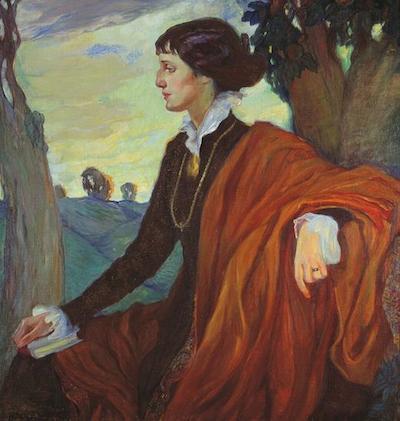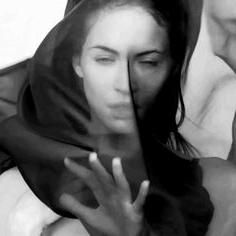Each verse of Anna Andreevna Akhmatova concerns the finest strings of the human soul, although the author does not use many means of expression and speech figures. An analysis of the poem "Gripped Hands Under a Dark Veil" proves that the poetess could tell about the complex with rather simple words that are accessible to everyone. She sincerely believed that the simpler the linguistic material, the more sensual, vibrant, emotional and vital her poems become. Judge for yourself...
Features of the lyrics of Akhmatova. Thematic groups
A. A. Akhmatova proudly called herself a poet, she didn’t like when the name “poetess” was applied to her, it seemed to her that this word belittled her dignity. And indeed, her works stand on a par with the works of such grandiose authors as Pushkin, Lermontov, Tyutchev, Blok. As an acmeist poet, A. A. Akhmatova paid great attention to the word and image. In her poetry there were few symbols, few imaginative means. Just every verb and every definition was chosen with particular care. Although, of course, Anna Akhmatova paid great attention to women's issues, that is, topics such as love, marriage, a female soul. There were many poems dedicated to fellow poets, the theme of creativity. Akhmatova also created several poems about the war. But, of course, the bulk of her poems are about love.
Akhmatova’s poems about love: features of interpretation of feeling
In almost no poem by Anna Andreyevna, love was not described as a happy feeling. Yes, she is always strong, bright, but fatal. Moreover, the tragic outcome of events can be dictated by various reasons: the mismatch of social statuses, jealousy, betrayal, indifference of the partner. Akhmatova spoke of love simply, but at the same time solemnly, without diminishing the significance of this feeling for any person. Often her poems are eventful, a peculiar lyrical plot can be singled out in them . The analysis of the poem "Clasped hands under a dark veil" confirms this idea.

To the category of love lyrics can also be attributed a masterpiece called "Gray-eyed King." Here Anna Andreevna speaks of adultery. The gray-eyed king - the beloved of the lyrical heroine - dies by chance on a hunt. But the poetess hints at the fact that the husband of this very heroine had a hand in this death. And the end of the poem sounds beautifully in which a woman looks into her daughter’s eyes, gray eyes ... It would seem that Anna Akhmatova managed to raise a banal betrayal to a deep poetic feeling.
The classic case of the mesalliance depicts Akhmatov in the poem "You are my letter, dear, do not crumple." The heroes of this work are not allowed to be together. After all, she always has to be for him nothing, only a stranger.
"Clasped hands under a dark veil": theme and idea of a poem
In a broad sense, the theme of the poem is love. But, if you specify, then we are talking about parting. The idea of the poem is that lovers often do some things in haste and without thinking, and then regret it. Akhmatova also says that loved ones sometimes show apparent indifference, while in their hearts they have a real storm.
Lyrical plot
The poetess depicts the moment of separation. The heroine, who shouted out unnecessary and insulting words to her lover, hurries after him up the steps, but, having caught up, she can no longer stop him.
Characteristics of lyrical heroes
Without the characterization of the lyrical hero, it is impossible to make a full analysis of the poem. "Clasped hands under a dark veil" - a work in which two characters appear: a man and a woman. She uttered stupid things in haste, gave her a drink of "tart sorrow." He - with apparent indifference - tells her: "Do not stand in the wind." Akhmatova does not give another characteristic to her heroes. For her, their actions and gestures do it. This is a characteristic feature of all Akhmatian poetry: not to talk about feelings directly, but to use associations. How does the heroine behave? She clasps her hands under the veil, she runs so that does not touch the railing, which indicates the greatest tension of mental strength. She does not speak, she screams, panting. And his face seems to have no emotions, but his mouth twisted “painfully”, which indicates that the lyrical hero cares, his indifference and calm are ostentatious. It is enough to recall the verse “Song of the last meeting”, which also does not say anything about feelings, but gives out internal excitement, the deepest experience is a seemingly ordinary gesture: the heroine puts on a glove from her left hand to her right hand.

An analysis of the poem "Gripped Hands Under a Dark Veil" shows that Akhmatova builds her love poems as a lyrical first-person monologue. Therefore, many mistakenly begin to identify the heroine with the poetess herself. This is not worth doing. Thanks to first-person narrative, poems become more emotional, confessional, and believable. In addition, Anna Akhmatova often uses direct speech as a means of characterizing her heroes, which also adds liveliness to her poems.